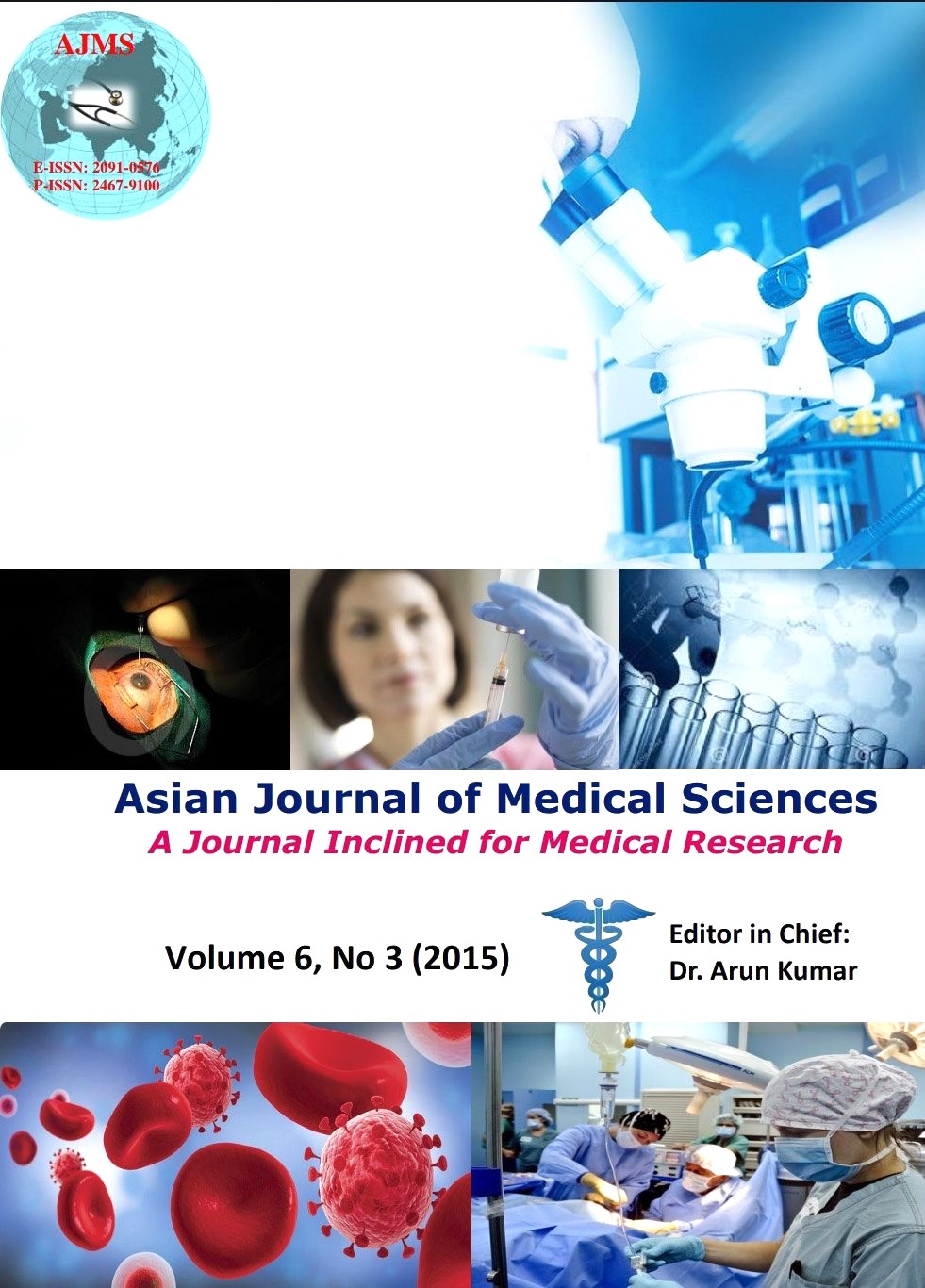Effect of coffee on blood pressure and electrocardiographic changes in nicotine users
Keywords:
Coffee, Nicotine, Blood pressure, QTc intervalAbstract
Objectives: The objectives of this study were to see the effect of coffee on Heart rate Blood pressure and ECG changes in nicotine users.
Methods: The study was conducted on 120 volunteers aged 21-40 years and with body mass index (BMI) between 17.3-28.0 kg /m2 .The subjects were divided into two groups: Control (n=40) and Study group (n=80).
Results: Observation suggests that increment in blood pressure, recorded in study group after coffee ingestion, was lesser than that of control group. We also observed that there were no significant changes in diastolic blood pressure in any group while the mean arterial pressure was higher in both the groups following coffee ingestion.
Conclusion: Coffee ingestion decreases the heart rate with no changes in QTc, hence we concluded that less amount of coffee ingestion may not be harmful.
DOI: http://dx.doi.org/10.3126/ajms.v6i3.10090
Asian Journal of Medical Sciences Vol.6(3) 2015 46-48
Downloads
Downloads
Published
How to Cite
Issue
Section
License
Authors who publish with this journal agree to the following terms:
- The journal holds copyright and publishes the work under a Creative Commons CC-BY-NC license that permits use, distribution and reprduction in any medium, provided the original work is properly cited and is not used for commercial purposes. The journal should be recognised as the original publisher of this work.
- Authors are able to enter into separate, additional contractual arrangements for the non-exclusive distribution of the journal's published version of the work (e.g., post it to an institutional repository or publish it in a book), with an acknowledgement of its initial publication in this journal.
- Authors are permitted and encouraged to post their work online (e.g., in institutional repositories or on their website) prior to and during the submission process, as it can lead to productive exchanges, as well as earlier and greater citation of published work (See The Effect of Open Access).




